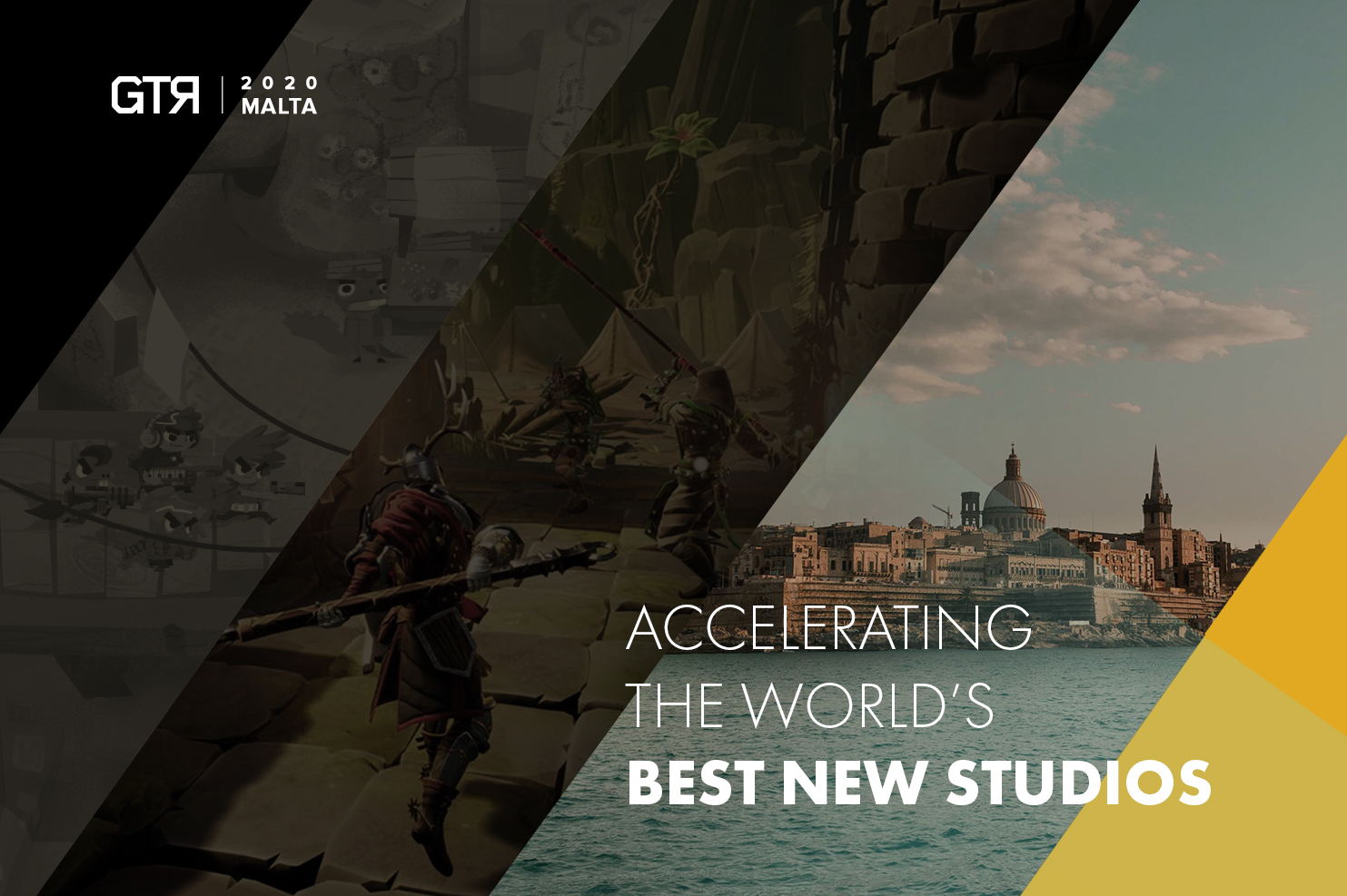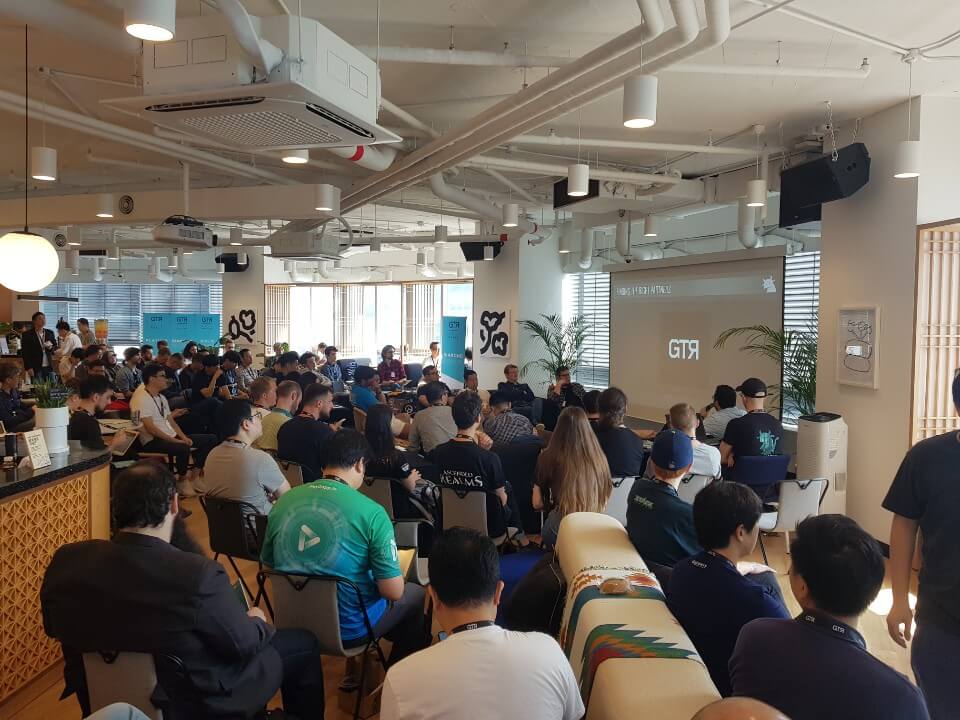The first thing that stuck with us after meeting Vlad from our publishing partner Another Indie, it’s his openness and love for gaming culture, that he brings with him during conferences and events around the world. We were so excited to talk to him about his work and get him to share some tips about publishing an indie game in China.
Vlad is currently working at Another Indie, a publishing company based in Taiwan, with a focus on releasing titles globally. He has been working with Another Indie for 4 years, when the company was merely established. He used to work at EA games, back when they were working on “Need for Speed: Carbon” and “Army of Two”. He then moved to Microsoft in the engineering field, before he joined Another Indie.
1. How long have you been a partner with GTR?
Peter Van Dyke introduced us three years ago; it was the first time that I was visiting BIC in Busan. Peter told us about GTR, and ended up meeting. After that, my colleague Iain went to one of the conferences and did a speech. We sponsored the 2018 Malaysian conference in Kuala Lumpur, and since then we started working together on a few games from GTR.
2. What should developers prepare before meeting with a publisher?
In our case is very easy, we need a playable demo, so we can actually try the game, and a pitch deck helps, as well as a GDD (Game Development Document), so we know how far the game is in development, and what’s the plan. Also, a list of what the developers are looking for from the publisher: do they need marketing help, do they need localization, do they need porting support, or help with getting dev kits, do they need any funding? If they do need funding, how much money they need and for how long. They should also do their due diligence, and talk to other developers that worked with said publisher, to see how it is, so they don’t get screwed over.
3. What are the criteria usually reviewed to benchmark a game?
We usually look if the game is fun, if it’s playable. If we like it, we usually set up a day, where everybody in the company plays the game that we get pitched, and we play through, we check if it’s something that everybody enjoyed, if it’s something we would work with, and if it fits into our schedule. If you have a playable build, thats it’s all that is required, and we don’t have a specific category, we just look if something fits with us, with our team or not. It depends of course, if they want to publish the game in China, then it’s a whole different process, because there’s a lot of different things to look at.
4. What game genre do you prefer as a publisher?
For me, I like action RPGs, like “Tomb Raider”, the “Uncharted” game series, and also top down adventure games. I am also a big fan of ARPGS, but those are difficult to publish and work with.
5. What are some common challenges you face when signing with a studio?
Most of the time, it’s the time zone differences because we always end up working remotely, since the studios are all over the world, and coordinating things when it comes to launch, or press releases and announcement dates. We have to make sure the developers have everything ready on time, like assets, or assess that the build is playable. We have a lot of guys asking how to make a showcase build, what does the showcase build needs to have, so when they display the games at Pax or other events, we have something made just for that, and that will attract people to the booth to see the game; or they ask how to make a specific press build. I guess the biggest hurdle is to make the developers follow the guidelines, and get them to listen to what we say, because a lot of the times we give them advice, and they would reply ‘Well, we don’t think it’s a good idea’, and then when we do an open beta, they get a lot of feedback from the players saying the same thing as we did. At that point they would say ‘That actually makes sense, we should do that now’.
6. What makes a game successful in your opinion?
There is no formula for success. Obviously I am a little biased here, but you should get a publisher to help you, because there is a lot of paperwork and bureaucracy that goes into launching a game. Plus, a publisher will also have the contacts within the industry, for example with Nintendo, PlayStation or Xbox, and they can help you pitch the game, same with Epic Store, or when contacting Steam. You would need to have your game ready, your partners ready, make sure your company is properly set up, so you don’t incur any crazy taxes. Make sure you have all the assets ready, and that you contacted your press and influencers. Also, build up your community, the more people you get hyped before your game releases, for example on your Discord server, the better it will sell on the first day, and more people will talk about it. A few years ago it was a whole different thing, but now it’s all about the community building, the more people you have interested in your game and interacting with the developers, the easier will be for you to launch it. Because they will end up being your hype squad, the ones going on Twitter, Facebook and Steam, and talk about the game, or tell their friends about how cool the game is, and make them try; it expands your network. It will also give valuable feedback, if you do a beta test period, and you get these passionate gamers that will help you out.
7. Can you share some tips about publishing in China?
The market is very different right now, as they just announced Steam China. The plan of the Chinese government is that, only a few games will be launching on Steam China and eventually when that is done, the standard Steam will be blocked. Right now, Steam discussions are completely blocked in this region, even with VPNs, people can’t access them, and that’s why most of the games end up getting negative reviews, as most of them are from Chinese gamers. For them, writing reviews is the only way to report bugs, or give feedback, otherwise they won’t be able to communicate with the developers. For China, you need to have certain approvals from the government, for example from the Ministry of Culture and GAAP. Certain things are banned, for example you are not allowed to display blood, nor skeletons; time travel is banned and there’s many other things that you have to watch out for. Not every game can be published in China on a local platform, you can still publish on Steam for now, but once Steam China, comes out it’s going to be a lot more difficult. Obviously, (to publish your game in China) localize the game in simplified and traditional Chinese, and when it comes to Japan and Korea, it is a quite similar situation, but not as harsh. Developers would need a local partner in those countries, who have companies there and can publish for you, and also you need to do the appropriate age rating, like CERO for Japan, and the GRB for Korea.It’s extra paperwork you will have to do, other than preparing your build and your due diligence.
Check out Another Indie:
https://anotherindie.com/
Join their Discord:
discord.gg/AI
Find Vlad on Twitter and Instagram: @Stutsies













 working on titles like “Lords of the Fallen” and “The Surge”. His final years with the company served as Business Development Manager. He then moved to a bigger role with Crunching Koalas as the company’s Head of Publishing.
working on titles like “Lords of the Fallen” and “The Surge”. His final years with the company served as Business Development Manager. He then moved to a bigger role with Crunching Koalas as the company’s Head of Publishing.












































